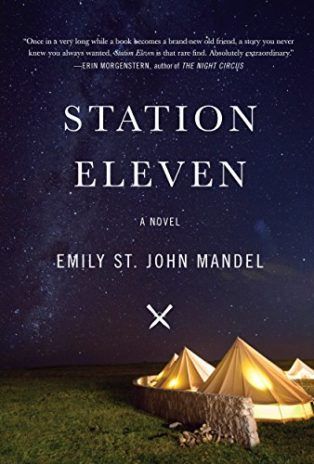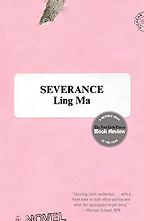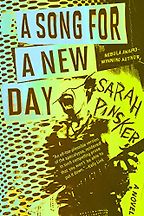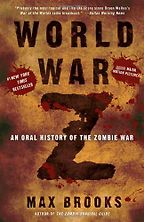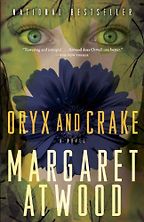Emily St. John Mandel’s poignant, strangely reassuring post-pandemic novel has sold more than a million copies and been made into a hit HBO series. If you loved her story of a travelling troupe of actors and musicians touring the re-made world, we think you’ll also appreciate these five post-pandemic books that, like Station Eleven, approach the end-times with an eye for its poetic potential.
In Peter Heller’s The Dog Stars—a novel set in the aftermath of a super-flu that has killed more than 99% of the world’s population—we meet Hig, a man who lives with his dog and an angry, armed neighbour at an abandoned airport. The Dog Stars was first published in 2012, when it became a bestseller in the US, but this brutal but ultimately hopeful narrative found a second-wave audience during the Covid-19 lockdowns. The novelist Rosa Rankin-Gee recommended it to us as one of the best near-future dystopian novels, noting: “The narration is extraordinarily well done. Many post-apocalyptic books have a spareness and sparseness that can sometimes feel affected. This feels incredibly naturalistic, and yet manages to be very lyrical… It’s effortlessly beautiful while being violent and harrowing.”
Ling Ma’s satire of corporate culture sees Candace, a Chinese-American employee of a bible publishing corporation, agree to stay on in the company’s Manhattan headquarters long after the other staff have fled an outbreak of a fungal infection that leaves victims braindead automatons—in return for an enormous bonus. Of course, by the time the payment appears in her account dollars have little relevance in a broken economy and she must take her chances with a cult-like gang who eke out a living in a derelict shopping mall. Outside, victims of the virus mindlessly reenact their most mundane daily routines ad infinitum. Columbia professor Jenny Davidson recommended it to us back when we were looking for books to read in quarantine: “[Severance] is about the intersection of immigration and global capitalism in modern cities, and the breakdown of human communication and meaningful human contacts that occur as a consequence.”
Sci-fi author and translator Ken Liu recommended A Song for A New Day when we asked him to recommend the best speculative fiction, explaining that it “imagines a world in which a plague has caused all of us to become isolated. Everyone is living like a hermit, working from home, eating at home, studying at home, and there are no large-scale gatherings anymore.” In this world, illegal concert-goers find themselves united by their passion for music—just as, in Station Eleven, the survivors of a deadly pandemic take comfort from the genius of Shakespeare. “Sarah draws on her experiences as a professional musician to portray why that matters,” explained Liu, “and to give people a sense of the potential of resistance in live music.”
Zombie stories are, essentially, a bloodstained sub-genre of the pandemic novel. They tend towards shock and gratuitous gore. But, like Severance, Max Brooks’ World War Z: An Oral History of the Zombie War, is notable for its literary styling and thoughtful world-building. It’s “a novel that bridges the gap between pulp and high literature,” explained the literary scholar Greg Garrett, when he selected the best books on zombies: “It takes a subject matter which we would think of as mainstream geek culture, but it finds universal human themes, develops characters that you care about, and also manages to be culturally critical.” Like Station Eleven, this book takes many different perspectives, this time in the form of a series of statements made by witness from around the globe. “There is a lovely effect like those achieved by modernists like James Joyce or Virginia Woolf in which you have a chapter from one character’s point of view, and then another chapter from another character’s point of view. You are putting together thirteen ways of looking at a blackbird.”
The first book in Margaret Atwood’s MaddAddam trilogy is “a really strange novel,” admitted the novelist Natasha Pulley when she recommended the best sci-fi romance novels: “I’ve never read anything like it.” The eponymous Crake is a scientist who has genetically engineered a virus which has wiped out most of the world; now, a man called The Snowman must navigate the dark days that follow. “It’s very hallucinatory and weird,” warns Pulley. In many ways, Oryx and Crake is a darker and more unpleasant book than Atwood’s phenomenally successful The Handmaid’s Tale, in which the environmental disaster and social upheaval underpinning the plot largely take place offstage. Nevertheless, it’s a compelling vision of a tumultuous future and a love story—of a kind. If you were intrigued by the doomsday cult that arises in Station Eleven, then we think you’ll like this book too, in which a young man plays prophet to exploit the naive.
Get the weekly Five Books newsletter
Five Books interviews are expensive to produce. If you've enjoyed this interview, please support us by donating a small amount.
